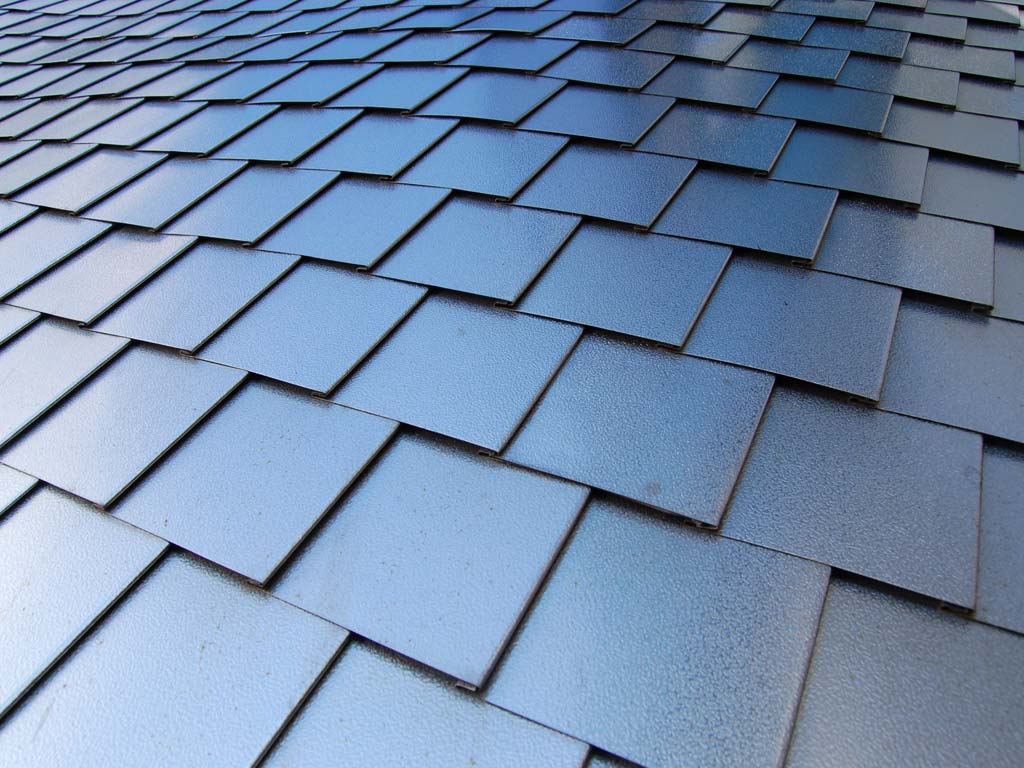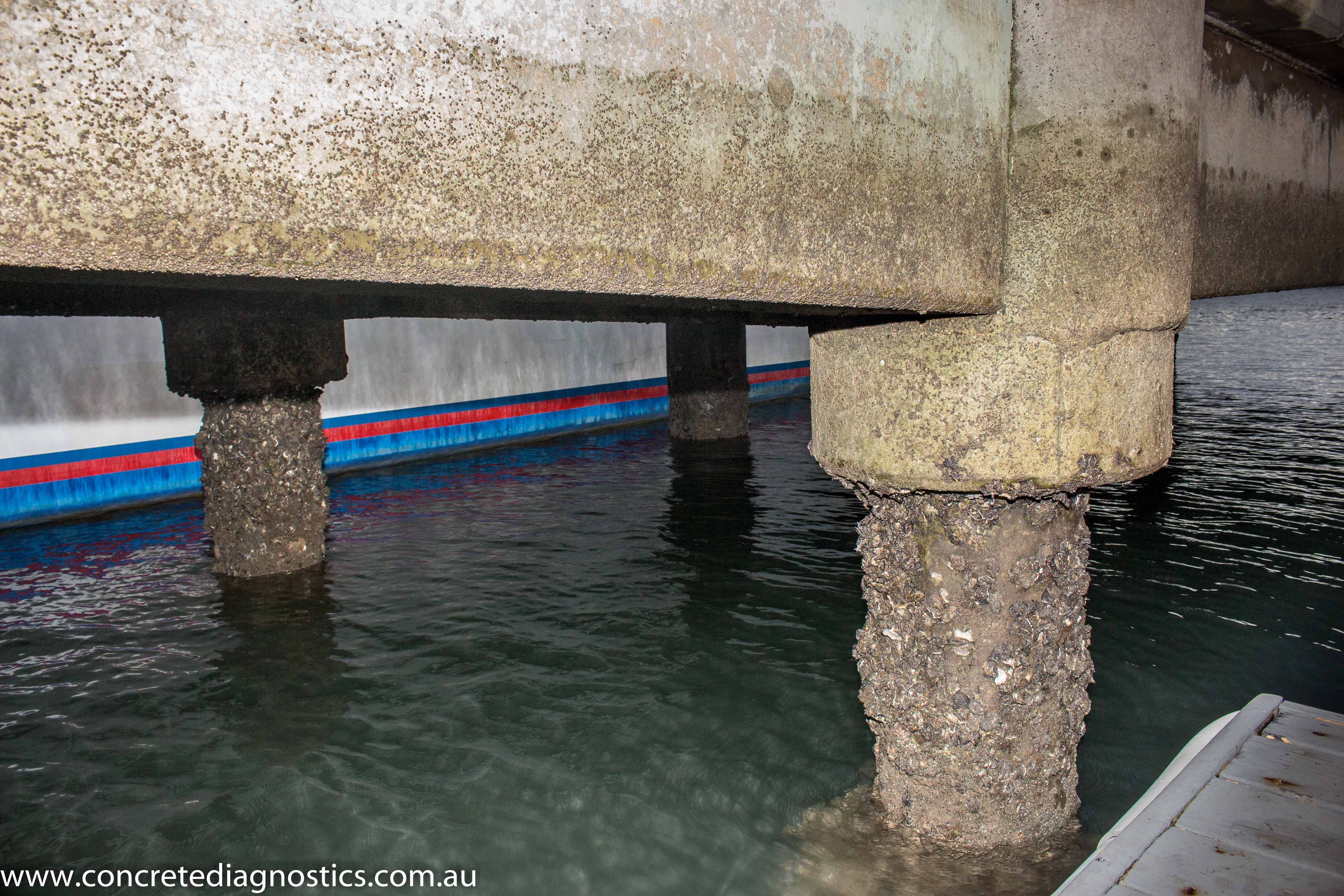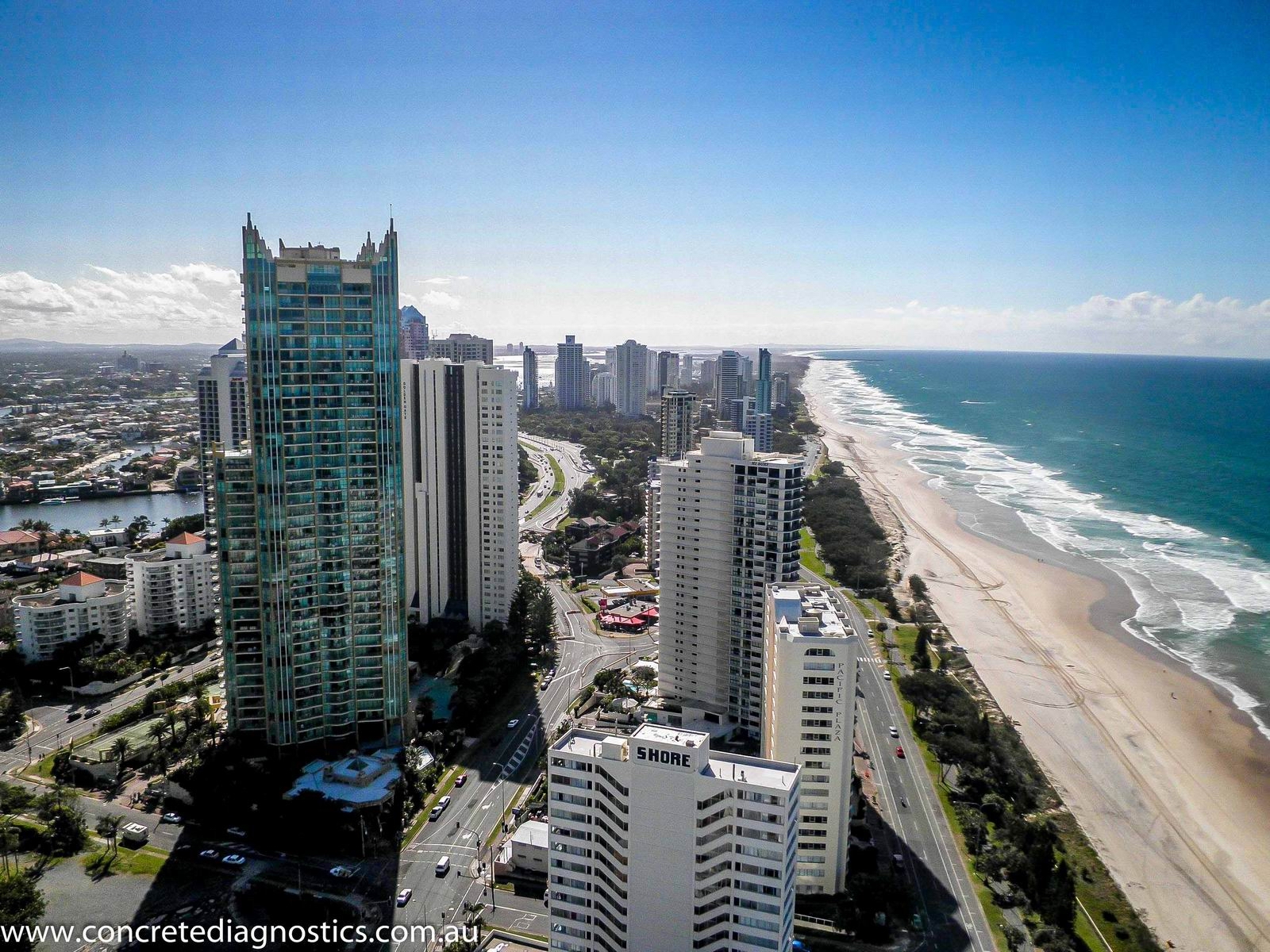




Chloride is an aggressive anion that can breakdown the passive film that protects steel reinforcement within concrete. This leads to the reinforcement corroding and subsequent cracking and spalling of the concrete.
Concrete testing using chloride profiling of concrete structures can determine if the level of chloride ion penetration has reached the depth of the reinforcement. This can assist in determining if corrosion may pose a risk to the structure.
From the chloride profile, trends can be observed, such as where the chlorides might have originated (eg external source or contaminated sands or aggregate) and their mobility through the concrete.
Typically a concrete structure exposed to a marine environment may have a very high chloride concentration towards the outer surface and reduce deeper into the concrete structure.
Chloride testing is not only beneficial in a marine environment, as many older structures may have use a curing agent such as calcium chloride or had been coated in a material high in chlorides which overtime ingress through the concrete structure.




An example of concrete members directly exposed to an aggressive chloride environment.
Many surf side apartment complexes and buildings are susceptible to chloride attack even though they are not directly in contact with the water.
Concrete Testing - Chloride Content
